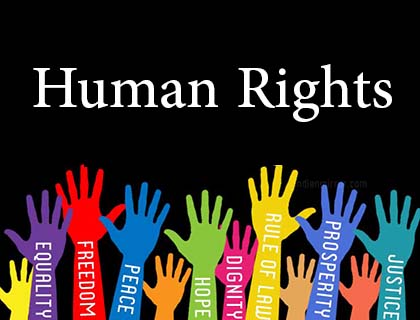
U.S.-Cuba human rights dialogue to begin Tuesday: What to expect?
WASHINGTON, DC – The human rights dialogue between the United States and Cuba that will begin with a meeting in Washington this Tuesday, March 31, will be under attack before it begins. Critics will denounce the talks, saying, “There won’t be any real changes as a result.” Defenders of the status quo will call them “window dressing for the Obama Administration’s policy changes.” A chorus will chime in, saying these are “diplomatic talks that ignore the ongoing repression.”
Of course, no serious analyst expects that one meeting, after 55 years of hostility, will produce immediate results. The first meeting is intended to discuss the structure of future talks, and the dialogue is going to have to overcome a legacy of mistrust, as well as the vast conceptual differences between the two countries on the topic of human rights. This meeting is the start of what will be a lengthy and challenging process.
Beyond these obvious points, the critical voices are wrong on a deeper level. They don’t really grasp how human rights improvements will come to Cuba, and they don’t understand the role that the dialogue can play in that process. In the context of a new U.S.-Cuban relationship, and in the context of the changes underway in Cuba itself, a human rights dialogue can contribute to important changes.
Cuba needs to improve on human rights. While Cuba has made real advances on some economic and social rights, it falls short on political rights. Short-term detention of dissidents is unacceptable, and the government ought to either charge people with crimes for which it has evidence, or leave them alone. Restrictions on freedom of speech—limits on access to the mass media, limits on ability to post on the internet, unjustifiable and arbitrary limits on what is acceptable speech—should be unacceptable. And limits on freedom of association—rules that criminalize unauthorized political meetings, prohibitions on political party formation—should be ended. The United States and others in the international community should be clear in our criticism of real and serious problems on the island.
But real reforms are ultimately going to take place in response to internal dynamics in Cuba. In fact, it is the economic reforms underway in Cuba now that are most likely over time to help open political spaces, and generate greater internal debate. New political issues are going to emerge as the economy broadens. The shifting economy is going to require greater access to information, and greater political debate. Decentralization is going to empower local governments and engage citizens in local decision-making. These and other changes will contribute to a changing political culture in Cuba.
The United States has already taken a major step that will support this process of internal change. The President has chosen to begin to normalize relations with Cuba. Concrete steps to relax tensions between Cuba and the United States through normal diplomatic relations and increased travel and trade can create a climate where repression is harder to justify, and where internal reformers—often inside the political system—will feel more able to push for political openings. Further steps to ease or end the embargo would do more to improve the internal climate.
No one should have illusions about the pace of Cuba’s internal reform. It is not likely to become a multi-party democracy in the near term. But, as the internal reform process advances and Cuba more fully integrates into the international economy, the country is likely to move toward greater openness, more debate, more tolerance of a variety of opinions, and ultimately more freedom of speech and association, and less political repression. In this context—where some reform is underway and Cuban-led spaces for debate are growing—the United States and other international actors can play a constructive role. As the Cuban government and other actors in Cuban society are exploring or experimenting with new approaches, a human rights dialogue can put issues on the table. The dialogue can make an important contribution by providing the opportunity to discuss values and mechanisms to implement those values.
Engagement can make a difference. Cuba does sometimes take actions in response to calls from outside actors. It has responded to pleas from the Vatican, for example, and it has released political prisoners over the years in response to calls and actions by external forces. The human rights dialogue itself might lead to gestures by the Cuban authorities. But the bigger changes will happen because of processes in Cuba, and the dialogue will be an opportunity to comment on and respond to those processes.
Finally, it is worth remembering two things. First, dialogue is a two-way process; the Cubans will have things to say to the United States about Ferguson and police abuse, lack of access to education and health care, and about other issues, while the United States raises concerns about limitations on freedom of speech and association in Cuba. Second, dialogues aren’t lectures. For all our political polarization, the United States has a culture of political tolerance and robust political debates where a wide range of viewpoints are represented. But that doesn’t mean that the United States should approach this human rights forum from a position of moral superiority or self-righteous lecturing. We should see the dialogue as an ongoing process where we explain and advocate for both U.S. and internationally recognized values and principles, and where we try to actually listen to and understand the Cubans’ point of view.
All this is to say that it is important to align our expectations in advance of Tuesday’s meeting. This is the first step in an ongoing process of dialogue that can, at its best, contribute to human rights improvements in Cuba. It’s not a magic answer, but it’s a positive step. After 55 years of not talking, this is progress.


